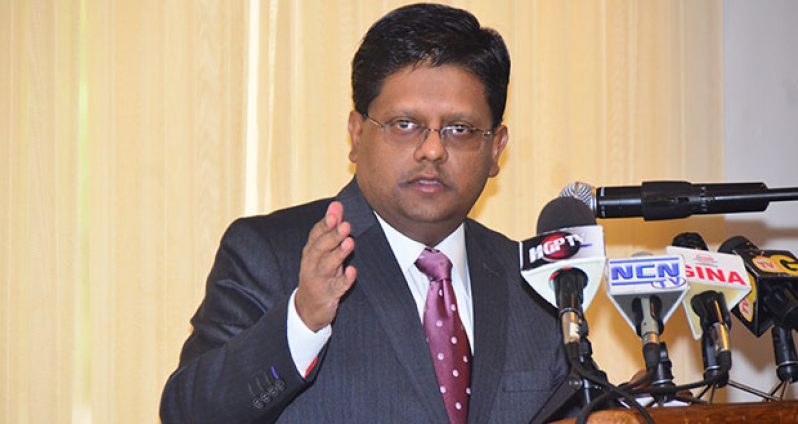WHILE Guyana has made many strides in achieving its Millennium Development Goals, Finance Minister Dr. Ashni Singh has issued a global call for the recognition of the Eighth Millennium Development Goal and the global commitment of developed countries to donate 0.7% of their Gross National Income (GNI) towards Official Development Assistance (ODA).
First pledged in the 1970 General Assembly Resolution, the 0.7% target has been affirmed in many international agreements over the years, including the March 2002 International Conference on Financing For Development in Monterrey, Mexico and at the World Summit on Sustainable Development in Johannesburg some time ago, according to the UN Millennium Project website.
‘An extremely important MDG is Goal 8 – this MDG not only speaks to access to technology but access to affordable pharmaceutical products as well as issues of official development assistance delivery, which is so critical to the achievement of other goals’ – Finance Minister, Dr Ashni Singh
Dr. Singh expressed concern that the target has not been met as he alluded to the effects this would have on the development of the eight MDG. The MDG speak to the development of a global partnership in order to “develop further an open, rule-based, predictable, non-discriminatory trading and financial system,” and to “address special needs of the least developed countries, landlocked countries and Small Island” and “deal comprehensively with developing countries’ debt.”
“I believe that the architects of the MDG framework recognised the importance of this global partnership for development as integral to the achievement of the rest of the goals,” the Finance Minister told the gathering at Herdmanston Lodge Wednesday for the launch of Guyana’s Maternal Health Acceleration Framework for MDG 5.
“In fact, it is in my mind difficult to conceive the other goals being achieved in the absence of MDG 8,” Dr. Singh said, adding: “Much focus has been placed on MDGs numbered one to seven… but an extremely important MDG is Goal 8.”
Dr. Singh noted that this MDG not only speaks to access to technology but access to affordable pharmaceutical products as well as issues of official development assistance delivery, which he says “is so critical to the achievement of other goals.”
The United Nations Millennium Project website establishes the relationship between the 0.7% commitment and the MDGs. “The UN Millennium Project’s analysis indicates that 0.7% of rich world GNI can provide enough resources to meet the Millennium Development Goals, but developed countries must follow through on commitments and begin increasing ODA volumes today.”
INTERLOCKING ISSUES
Further addressing the link between MDGs and the 0.7% Global Commitment, Dr. Singh also said: “Maternal mortality isn’t only about maternal health and child health but in fact is also about economic prosperity and economic wellbeing and how interlocking and interrelated these issues are.”
44 YEARS OF GLOBAL INACTIVITY
Dr. Singh stressed that the commitment was initially designed to be achieved in ten years but it has been 44 years since and “today there are only 5 developed nations of the world [that] have achieved that target.”
“If we recognise that poverty reduction and poverty eradication [and] social development as articulated by that UN General Assembly Resolution of four decades ago [and] if we recognise that the public good nature of development in that context then as a global community we have an obligation to participate,” Dr. Singh emphasised as he made a final call for the global community to recognise the implications of underachievement of the eighth Millennium Development Goal.




.jpg)










